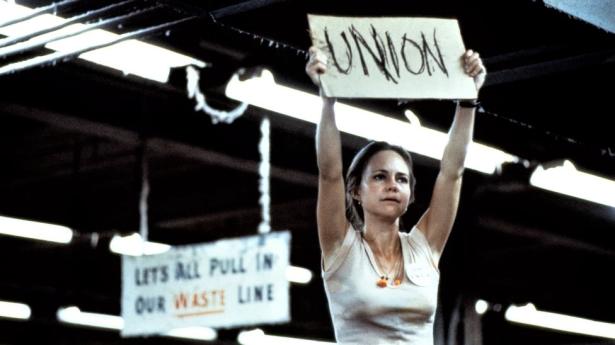May 30, 1973 (50 years ago). In Roanoke Rapids, N.C., managers at the union-busting J.P. Stevens textile mill fire union organizer Crystal Lee Sutton for "insubordination" and drag her off the premises, an act that was immortalized six years later in the Oscar-winning film "Norma Rae". At the start of this unforgettable 6-minute clip, the dialog is hard to hear because the machinery is making so much noise, just like in real life. https://www.youtube.com/watch?v=X8ulYIVcCeY
May 31, 1779. On this day, when the government of the United States was less than three years old, it adopted an explicitly genocidal policy in regard to any Native Americans who did not actively support it. That might sound like a harsh judgment, but what other interpretation could be put on the orders that George Washington, the commander-in-chief of the Continental Army, wrote on May 31, 1779? Washington had appointed General John Sullivan to invade central New York State with four thousand soldiers, in what Washington called an Expedition, and make war against the thousands of Iroquois people who had lived there for hundreds, if not thousands of years, in territory that had become a military no-man's land between the British on the south shore of Lake Erie and the revolutionary troops in Pennsylvania. These are the orders that Washington gave to Sullivan: "The Expedition you are appointed to command is to be directed against the hostile tribes of the Six Nations of Indians, with their associates and adherents. The immediate objects are the total destruction and devastation of their settlements, and the capture of as many prisoners of every age and sex as possible. It will be essential to ruin their crops now in the ground and prevent their planting more. . . . should be detached to lay waste all the settlements around, with instructions to do it in the most effectual manner, that the country may not be merely overrun, but destroyed." Of course, the word "genocide" would not be coined for more than 160 years, but it sure fits. https://en.wikipedia.org/wiki/Sullivan_Expedition
June 1, 1843 (180 years ago). The formerly-enslaved and self-emancipated Isabella Baumtree changes her name to Sojourner Truth. Truth, who went on to be a leader of both the movement to abolish slavery and the movement to fully enfranchise all women, is perhaps most famous for "Ain't I a woman?", a short speech she delivered in 1851 on the equal importance of ensuring the rights of all women and all men. https://www.youtube.com/watch?v=XilHJc9IZvE
June 2, 1924. By substantial majorities, both the House and the Senate vote in favor of adding an amendment to the U.S. Constitution that would give Congress "the power to limit, regulate, and prohibit the labor of persons under eighteen years of age." A majority of the states have approved it, but it must be ratified by three-fourths of the states before it can go into effect, which will only occur if another 10 states agree. The 22 states that have not yet approved the child labor amendment are Alabama, Alaska, Connecticut, Delaware, Florida, Georgia, Hawaii, Louisiana, Maryland, Massachusetts, Mississippi, Missouri, Nebraska, New York, North Carolina, Rhode Island, South Carolina, South Dakota, Tennessee, Texas, Vermont and Virginia. I'd guess it will never be ratified, even though the need for it is as clear as it ever was, as shown by this very recent report. https://www.epi.org/publication/child-labor-laws-under-attack/
June 3, 1979. In Shoreham, N.Y., fifteen thousand environmentalists and anti-nuke activists lay siege to what would have been Long Island's only nuclear power plant, in the largest demonstration ever held on Long Island. In the face of fierce public opposition, the plant never went into operation. https://en.wikipedia.org/wiki/Shoreham_Nuclear_Power_Plant
June 4, 1841. The Boston Vigilance Committee organizes itself to protect self-emancipated former slaves from being captured and returned to slavery in the South. During the Committee's 20-year existence, it provided essential aid to hundreds of people, including Ellen and William Craft and Shadrach Minkins. One person the Committee famously tried unsuccessfully to protect was Anthony Burns. In 1854 when Burns was arrested in Boston, some twenty thousand protesters filled the city's streets in an effort to prevent his deportation to the South. It required ten thousand heavily armed federal troops and the entire Boston police department to keep Burns in custody and deliver him from jail to a ship that was docked just a few blocks away. https://www.masshist.org/features/boston-abolitionists/resisting-fugitive-slave-law
June 5, 1851. An abolitionist newspaper publishes the first chapters of Uncle Tom's Cabin, or Life Among the Lowly, by Harriet Beecher Stowe. After the newspaper serialized the entire anti-slavery novel in 40 installments, it was published as a book that became the 19th century's No. 2 best seller (after the Bible). Abraham Lincoln is reputed to have said "So this is the little lady who started this great war," when he was introduced to Stowe in 1862. https://newenglandhistoricalsociety.com/harriet-beecher-stowe-little-lady-started-civil-war/


Spread the word